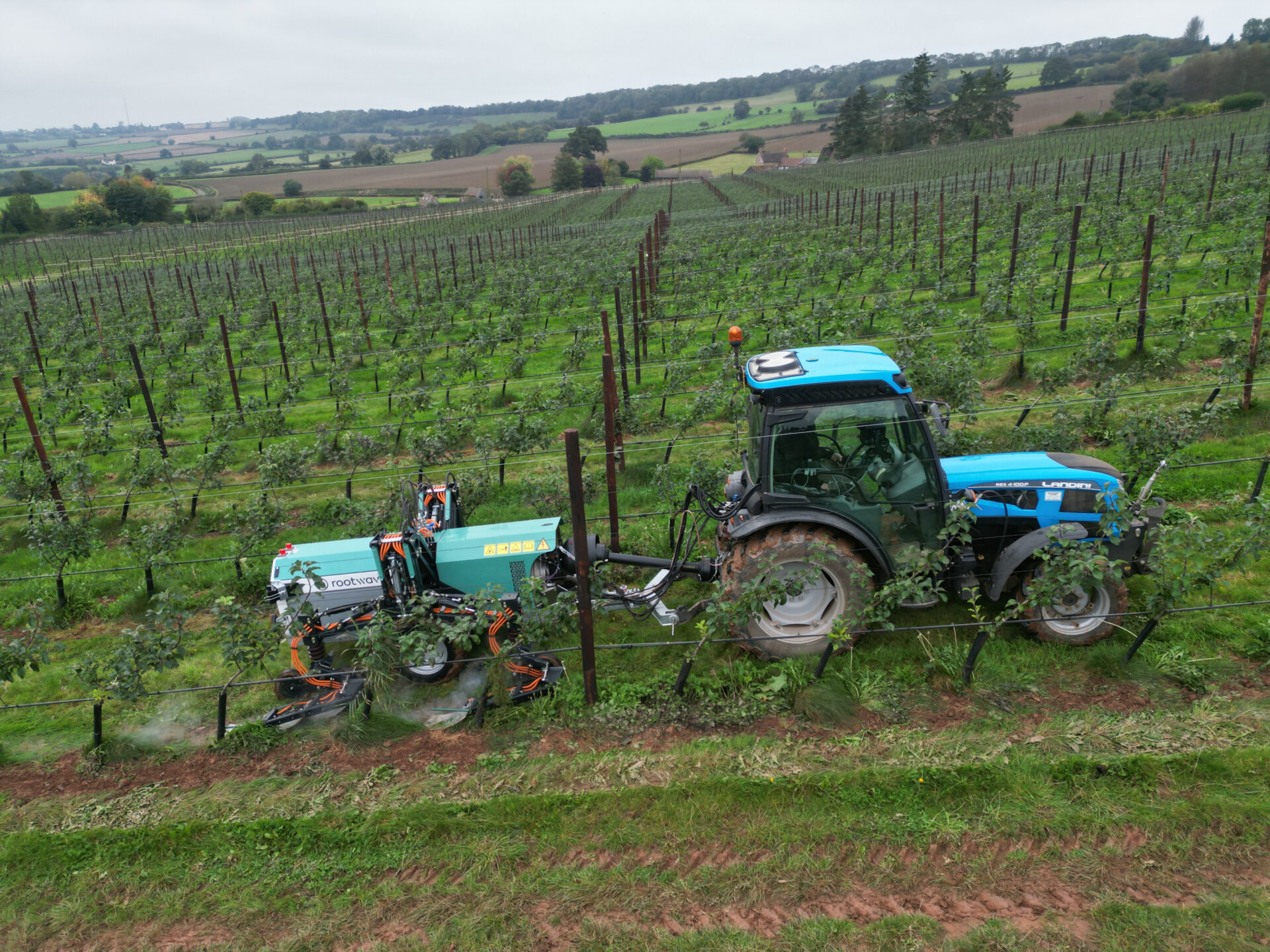Editor’s Note: AgFunder is hosting an industry insights breakfast in London next month for corporate, family office, and institutional investors. Apply to attend here.
AgFunder representatives will go on to speak at the World Agri-Tech Innovation Summit; use discount code “AFN” for 10% off.
All eyes are on London next month as the World Agri-Tech Innovation and Future Food-Tech Summits return to the city, making it a great time to stay up-to-date on the latest developments in UK food and agriculture policies, as well as technology initiatives.
In fact, it seems that food- and agriculture-related announcements from the UK government have proliferated ever since the Labour Party took office in July 2024 and promised—as part of its wider “plan for change”—to bolster British farming, increase sustainable food production, and tackle the obesity epidemic, among other things.
These plans and announcements arrive at a time when agrifood startups face a tough funding environment and Britain’s cost-of-living crisis continues to drive up food prices.
Such issues, along with many others—from alternative protein approvals and robotics to international trade and land use—will no doubt be on the discussion table during World Agri-Tech.
The timeline below tracks agrifood developments in the UK over the last year; we will update regularly as new announcements arrive.
October 2024
🧬 The UK government launches the Regulatory Innovation Office (RIO) with the goal to “update regulation, speed up approval timelines, and coordinate issues that span existing boundaries.”
RIO will focus on four technologies: engineering biology; AI and digital in healthcare; connected and autonomous technology; and the space sector. Alternative proteins like cultivated meat fit into the “engineering biology” category.
🥩 The UK Food Standards Agency (FSA) gets £1.6 million ($2.1 million) to create a regulatory sandbox for cell-cultivated products (CCPs).
“The CCP sandbox programme will enable safe innovation and allow us to keep pace with new technologies being used by the food industry to ultimately provide consumers with a wider choice of safe foods,” said the FSA.

January 2025
👩🌾 Farm reforms are announced as part of the Labour government’s Plan for Change and the New Deal for Farmers.
The reforms include faster planning on essential infrastructure and buildings; building more grid connections so that farmers can diversify income via wind and solar projects; new regulations for fairer supply chains; and trade deal protections. They also promise that 50% of produce in the catering industry will come from British farmers.
🌿 A “national conversation” is launched for “managing land use in England to give decision makers the data they need to protect our most productive agricultural land, boosting Britain’s food security in a time of global uncertainty and a changing climate.”
The idea is to build a framework for land use that protects farmland while balancing that with home building and energy production needs.
🪧 Farmers protest the inheritance tax reforms—which for the first time apply the tax to inherited agricultural assets worth more than £1 million ($1.3 million).
Major supermarkets including Aldi, Tesco, Lidl, Sainsbury’s, Waitrose, and others back farmers in the fight. The National Farmers Union calls for “the government to pause its plans and hold a consultation on how best to raise revenue while minimising the impact on farmers,” according to the times.
February 2025
🚚 The government says it will not sign trade deals with suppliers that might violate UK food standards such as hormone-free beef or chlorine-washed chicken—practices that are illegal for UK farmers. The move is widely seen as a means of protecting domestic production and overall food quality.
“We will not undercut standards in trade deals. The previous government did that with the Australia deal to the fury of the sector and we have ruled that out,” Steve Reed, Secretary of State for Environment, Food and Rural Affairs, says at the National Farmers Union Conference.
March 2025
🌱 Defra (Department for Environment, Food, and Rural Affairs) announces £5 billion ($6.7 billion) over two years to “sustainable farming and nature recovery.” Among the various schemes is the Sustainable Farming Incentive (SFI) that now has more than 37,000 multi-year live agreements, and which Defra says it will revise to focus on nature as well as getting farmers fair payments.
This could fund more sustainable practices on the farm and boost technologies geared towards environmental monitoring.

April 2025
🚜 The government announces £45.6 million ($61 million) in funding for farm technologies including robots, irrigation systems, and animal health monitoring solutions, among others.
New funds “will help bring cutting-edge technologies into real-world use with a particular focus on reducing on-farm emissions and capitalising on new opportunities made possible by the Precision Breeding Act, which could supercharge food production by increasing crop yields, reducing pesticides and enhancing disease resistance,” says Defra.
May 2025
🌾 Two farmtech innovation competitions open under the Farming Innovation Programme (FIP): a £12.5 million ($17 million) prize to support research on reducing farm emissions; and a £12.5 million prize for R&D using precision-bred crops to improve yield, reduce chemical inputs, and enhance disease resistance.
🤝 The UK-EU trade reset deal is secured, promising to lower food costs for British citizens. The agreement grants EU fisheries access to British waters for another 12 years, and removes many checks on British food exports going to the EU.
Prime Minister Sir Keir Starmer calls the deal “historic” and says British products could once again “be sold with ease” to European markets. Others, including former Prime Minister Boris Johnson, express concern for the UK fishing industry and talk of once again ”paying countless millions of pounds into EU coffers . . .”
June 2025
💷 Defra launches a new £5 million ($6.7 million) round of Farming Innovation Investor Partnerships, which blends grant funding and private investments to help agtech businesses scale and commercialize innovations that are ready to be used on farms.
🔬The UK government unveils the Life Sciences Plan, part of the Modern Industrial Strategy, and says it aims to become one of the world’s major life sciences economies by 2035.
To get there, it intends to invest £600 million ($808 million) into a health data research service, £650 million ($876 million) into Genomics England over five years, and up to £345 million ($465 million) towards health data and research program Our Future Health. It will also allocate £30 million to preclinical infrastructure and £20 million for the UK BioBank, a biomedical database.
🐑 Agtech and precision breeding are formally included in the Modern Industry Strategy, and a £200 million ($269 million) commitment is secured for the Farming Innovation Programme (FIP) through 2030. Expected benefits of this development include increased on-farm productivity from precision ag and automation tech, environmental gains, and more export opportunities for UK agritech companies.
July 2025
💉Steve Bates OBE is appointed Executive Chair of the Office for Life Sciences. Bates has been CEO of the UK BioIndustry Association since 2012, and was a founder member of the UK Government’s Vaccine Taskforce.
🥃 The UK-India trade deal, known formally as the India–United Kingdom Comprehensive Economic and Trade Agreement (CETA), is signed. Starmer calls it “the biggest and most economically significant” trade deal Britain had made since Brexit,
Among other things, the deal will eliminate tariffs on around 99% of Indian exports to the UK, including those for agricultural products, pharmaceuticals, and processed food. For Indian imports from the UK, it will halve whiskey and gin duties from 150% to 75% then falling to 40% over 10 years.
🐖 Also in trade, the UK and Mexico struck a £19 million ($26 million) deal to bring British pork to Mexico’s markets via 12 businesses across England and Northern Ireland.
These businesses will be able to export pork products, including not just chops but offal and edible by-products—items not necessarily popular with British eaters but standard in many Mexican meat dishes.
🏔️ Steve Reed tells Groundswell festival attendees that the new land use plan will boost food production in some areas while decreasing or removing it in others to increase space for nature. Upland farms—those with higher elevation and harsher terrain—could be incentivized to stop farming under the new framework.
🍎 The government launches “Good Food Cycle” framework, “an ambitious new national food strategy,” that outlines what a healthier, more sustainable, more resilient food system might look like.
While it’s lean on specifics, the framework outlines 10 outcomes for healthier, more sustainable, and resilient food systems.
The five-year-long LIFE in the Ravines project in the Peak District restored up to one quarter of the region’s most damaged woodlands. Teams replanted woodlands destroyed by ash dieback
“By planting 84,000 trees, we’re not just replacing what was lost to ash dieback, we’re creating more diverse and resilient woodlands that will thrive for generations to come,” Martin Evans, Woodland Restoration Manager for Natural England, said in a statement.

August 2025
🥬 The UK government allocates a record £150 million in farm improvement grants to more than 8,000 farmers across England under the Capital Grants scheme. The initiative supports more farmer access to sustainable farming practices and environmental improvements, from habitat restoration to slurry system upgrades and more tree planting.
“We know that for farm businesses to thrive, they need to be profitable, and we will ensure that every penny of the budget reaches farmers as part of the government’s Plan For Change,” said Minister for Food Security and Rural Affairs, Daniel Zeichner.
In a press release, the government noted that “A record £11.8 billion for sustainable farming and food production is being invested over this parliament.”
🏥 The government and pharmaceutical giant Lilly announce “up to £85 million” in support of a new “health innovation programme” that could make it “easier for patients living with obesity to access holistic care to improve their health.”
“This programme also underlines life sciences’ critical value to our Plan for Change and our modern Industrial Strategy,” Science and Technology Secretary Peter Kyle said. “By working hand-in-hand with one of the world’s largest life sciences companies, we are driving investment into the UK and tackling one of the greatest health challenges of our era.”
🧪 Science and technology projects in Northern Ireland are promised a boost of “at least £30 million from the UK’s modern industrial strategy.
The post 12 months of UK agrifood strategy—and where it’s headed next appeared first on AgFunderNews.



